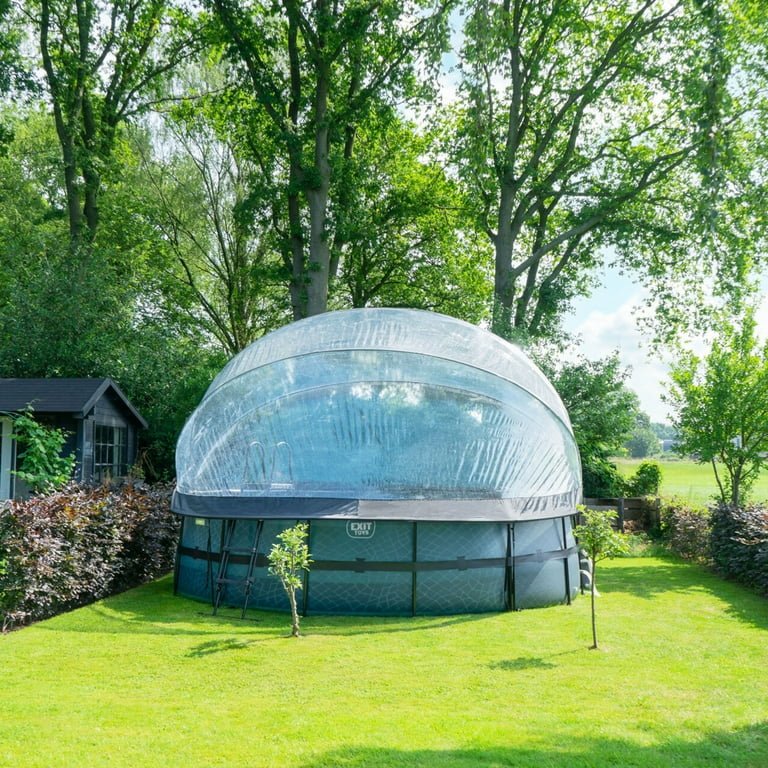Starting a new sport feels like stepping into a world where excitement, fear, and discovery collide. You might feel your heart race before the first session or butterflies fluttering in your stomach as you grab that ball, racket, or board. That rush isn’t just nerves—it’s your brain and body adjusting to something thrillingly new.
In this guide, you’ll uncover the real emotions, thoughts, and sensations that come when you begin a new athletic journey. You’ll learn why your mind feels nervous, why your muscles ache, and how that awkward beginner phase eventually turns into confidence.
Understanding What You Feel When You’ve Started a New Sport
Starting something unfamiliar often triggers a cascade of emotions. Whether you’re joining a soccer team, learning tennis, or trying yoga, your body releases a blend of adrenaline and dopamine. These chemicals heighten focus and energy, making you feel both nervous and excited.
This mix of emotions is completely natural. Your brain is assessing risk while your body prepares for action. Psychologists call this “approach-avoidance conflict”—you want to do it, but fear of failure holds you back.
Here’s a quick breakdown of how emotions usually play out in those first few weeks:
| Emotion Type | Common Feelings | Description |
| Positive | Excitement, Motivation, Curiosity | A surge of anticipation that drives you to try again. |
| Neutral | Awareness, Focus, Uncertainty | The phase where you analyze and adjust to your surroundings. |
| Negative | Nervousness, Fear of Judgment, Self-Doubt | Temporary anxiety about performance or social perception. |
Every new athlete, from kids in their first practice to adults picking up cycling, experiences this wave of mixed emotions. The beauty lies in how quickly these feelings evolve once you push through the initial hesitation.
The Emotional Rollercoaster of Beginning a Sport
Starting a sport is an emotional adventure. Some days you’ll feel unstoppable, while others might test your patience. Understanding this cycle helps you stay balanced and motivated.
The Excitement of a Fresh Start
That spark of enthusiasm you feel after your first training session isn’t random. It’s your body rewarding you with dopamine, often called the “motivation molecule.” New experiences trigger a reward response in your brain, encouraging you to continue.
You’ll notice:
- A rush of happiness after small wins.
- Pride in mastering a new move.
- Energy surges that make you crave the next session.
A tennis beginner, for example, might feel unstoppable after finally hitting the ball cleanly across the net. That moment creates momentum, fueling passion and progress.
The Anxiety of the Unknown
Alongside excitement comes uncertainty. Many new athletes fear being judged or making mistakes in front of others. You may worry about looking clumsy, missing shots, or not fitting in. This anxiety can cause muscle tension and shallow breathing—both normal physiological responses.
To ease anxiety:
- Focus on your own growth, not others’ opinions.
- Breathe deeply to calm nerves.
- Remember: every expert was once a beginner.
The Motivation That Fuels Progress
Motivation fluctuates. Some days, you’ll feel unstoppable; others, you’ll want to skip practice. Consistency, not intensity, keeps momentum alive.
To stay motivated:
- Set short, achievable goals.
- Track your progress weekly.
- Reward yourself after milestones (like completing your first month).
Even a small improvement—running an extra lap, lifting heavier, or mastering a new yoga pose—builds confidence and keeps you going.
Physical Feelings what do u feel when uve started a new sport
The body reacts strongly when it faces new movements. You might feel soreness in muscles you didn’t know existed, stiffness in joints, or fatigue after practice. This physical discomfort is your body adapting to new demands.
Common Physical Reactions:
- Muscle soreness (DOMS – Delayed Onset Muscle Soreness).
- Increased heart rate and breathing efficiency.
- Improved balance and coordination.
- Release of endorphins, giving you a “natural high.”
When you challenge your muscles in new ways, microscopic tears occur. These tears repair and grow stronger during recovery. That’s why rest, hydration, and nutrition matter as much as training.
Quick Recovery Tips:
- Stretch after every session.
- Drink plenty of water.
- Get at least seven hours of sleep.
- Eat foods rich in protein and magnesium.
With time, soreness fades and stamina increases. The pain that once slowed you down becomes a badge of progress.
The Mental Journey: From Overwhelm to Empowerment
Sports don’t just shape your body—they transform your mindset. In the beginning, your thoughts might swing from excitement to frustration. The key is embracing mental resilience.
Overcoming the First Hurdles
At first, everything feels harder than it looks. You might compare yourself to others and feel inadequate. That’s your inner critic talking. Silence it by focusing on effort instead of outcome.
One useful strategy is the “1% improvement rule”—aim to get just 1% better each session. Over time, these tiny gains accumulate into remarkable progress.
Building Confidence Step by Step
Confidence doesn’t arrive overnight; it’s earned through repetition. Each occasion you appear, you demonstrate to yourself that it is achievable. Visualization also helps—picture yourself performing successfully before each session.
Confidence boosters:
- Keep a progress journal.
- Celebrate milestones (even small ones).
- Learn from mistakes instead of fearing them.
Finding Your Flow
Once the basics click, you’ll experience a mental state athletes call flow—total absorption in the activity. Time seems to vanish; movements feel natural. Psychologist Mihály Csíkszentmihályi described this as the peak experience of focus and enjoyment.
Achieving flow comes from practice, comfort, and confidence. When it happens, it feels magical—like the sport has become an extension of who you are.
Social and Emotional Growth in a New Sport
Sports aren’t just about performance; they’re about connection. When you join a club or class, you enter a supportive ecosystem. Teammates cheer you on, coaches guide your growth, and shared challenges create deep bonds.
Benefits of the social aspect:
- Builds teamwork and empathy.
- Enhances communication skills.
- Boosts motivation through accountability.
For example, someone joining a community volleyball team might start shy but end up forming lasting friendships through shared victories and failures. Emotional growth often happens faster when you have others cheering you on.
Lessons Learned what do u feel when uve started a new sport
Every sport teaches lessons that stretch far beyond the field or court. You’ll develop resilience, patience, and humility—qualities that shape your character.
Life Lessons Sports Teach:
- Discipline: Training schedules and self-control become habits.
- Perseverance: Learning new techniques takes repeated effort.
- Self-Awareness: You learn to understand your limits and strengths.
- Adaptability: Handling unpredictable outcomes becomes second nature.
These lessons translate beautifully into daily life. Whether facing a work deadline or personal challenge, you’ll notice the same determination you built in training guiding you forward.
Tips to Handle the Emotional Highs and Lows
Even seasoned athletes face ups and downs. Here’s how to stay balanced and focused as you navigate your early journey.
Stay Consistent Even When Motivation Fades
Motivation can fade; discipline keeps you steady. Treat practice like an appointment you can’t cancel. If you ever feel like quitting, remind yourself why you started.
Celebrate Small Wins
Big progress is made up of countless small victories. Each milestone deserves recognition—completing your first week, mastering a new move, or simply showing up when you didn’t feel like it.
Keep a “win log” where you jot down achievements. It’s powerful to look back and see how far you’ve come.
Embrace Failure as Part of Growth
Failure isn’t the opposite of success—it’s the pathway to it. Every missed shot, stumble, or lost match teaches something valuable.
“Every winner started as a competitor who would not back down.” — Rocky Balboa
Learn from each mistake, adjust, and move forward. That’s how mastery begins.
Real-Life Stories: what do u feel when uve started a new sport
Hearing from others can make your own experience feel more relatable.
Case Study 1: A Beginner Runner’s First Month
Sara, 29, started jogging to relieve stress. The first week, her legs burned, and she felt embarrassed running slowly. By week three, she noticed better breathing, smoother strides, and newfound confidence. “Now,” she says, “I run for clarity, not competition.”
Case Study 2: A Teen’s First Basketball Season
Ali, 16, joined his school’s basketball team without prior experience. “At first, I missed every shot,” he laughs. “But my coach reminded me that effort beats talent when talent doesn’t try.” By the end of the season, Ali wasn’t just playing better—he was mentoring new players.
These stories prove that the discomfort you feel now is temporary; the pride lasts forever.
FAQs About Feelings what do u feel when uve started a new sport
Q1: Why do I feel nervous when starting a new sport?
Because your brain interprets unfamiliar situations as potential threats. Once your body adapts, nerves fade and excitement takes over.
Q2: How long does it take to feel comfortable?
Most beginners feel more confident within 3–6 weeks of consistent practice.
Q3: What are normal physical sensations for beginners?
Soreness, fatigue, and shortness of breath are typical. With proper recovery, these diminish over time.
Q4: How do I stay motivated after the initial excitement fades?
Set goals, track progress, and find community support. External accountability works wonders.
Conclusion: The Beautiful Chaos of Beginning Something New
Starting a new sport isn’t just about fitness—it’s a journey of self-discovery. The initial nervousness, the sore muscles, the fleeting doubts—all lead to a stronger, more confident you.
When you ask yourself what do you feel when you’ve started a new sport, remember: you feel alive, challenged, and growing. Every stumble, sweat drop, and smile marks progress.
The next time fear whispers, “You can’t,” let excitement roar louder. Because every champion, at some point, was simply a beginner who dared to start.
Related LSI Keywords Used Naturally:
beginner athlete emotions, first-time sports experience, starting a new hobby feelings, mental benefits of sports, overcoming sports anxiety, motivation for beginners, physical sensations after sports, emotional growth through sports, confidence in new activities, social impact of sports




Leave a Reply